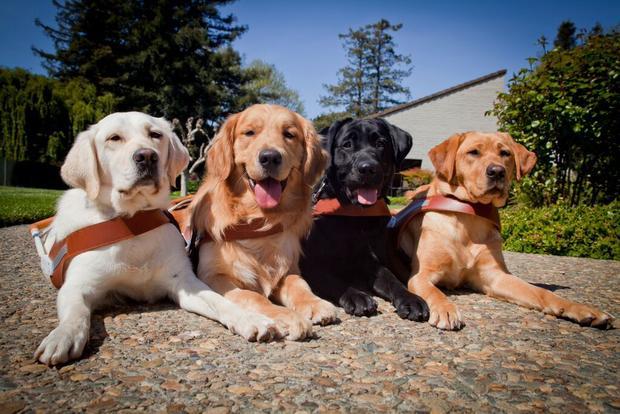Caring For Senior Dogs ,Holistic Care For Senior Dogs.
Golden Years and Wagging Tails: A Comprehensive Guide to Holistic Care for Senior Dogs
Caring For Senior Dogs to help your older dog live a happier life as he ages.Dental Care,Arthritis,
Introduction
As a dog lover, your loyal canine companion has grown older with you, and now it’s time to ensure that their senior years are filled with love, comfort, and vitality.
Just as we age, dogs undergo a transformation, and with that transformation comes a set of unique needs. Holistic care for senior dogs embraces a comprehensive approach that takes into account not only the physical but also the emotional and mental well-being of your four-legged friend.
There are many good ways to help your older dog live a happier life as he ages. Old age can be a very pleasant, comfortable time for your caring for senior dogs if you try to plan ahead and take precautions for your dog. Enjoy these final years together and treasure them.
In this guide, we will explore the art of holistic care for senior dogs, enabling you to provide your beloved pet with the best possible quality of life as they enter their golden years.
Understanding Senior Dogs
A dog is typically considered a senior when they reach around 7 to 10 years, depending on their breed and size.
Senior dogs, typically those aged seven years and older, have unique requirements that deserve attention:
1. Physical Changes: They may experience a decline in mobility, changes in weight, and even issues with their senses.
2. Arthritis and Joint Problems: Arthritis can lead to joint pain, stiffness, and reduced mobility, making daily activities challenging.
3. **Cognitive Changes**: Cognitive dysfunction, often referred to as “doggie dementia,” can cause disorientation and memory loss.
4. **Dental Issues**: Senior dogs are more prone to dental problems like gum disease and tooth decay.
5. **Weight Management**: Slower metabolism can lead to weight gain if their diet is not adjusted accordingly
Holistic Care for Senior Dogs: A Comprehensive Approach
1. Balanced Diet:
- Providing the right nutrition is fundamental.
- Whatever you feed your dog you should make sure that it is a food of high quality that is meeting all of his nutritional needs.
- There is no reason to cut down on your older dog’s protein intake unless he has a specific kidney problem.
- You can continue to feed your older dog the same protein level as when he was younger unless he has a kidney diseases.
- Senior-specific dog food or homemade diets tailored to their age and health condition are essential.
- There are some foods marketed specifically for older dogs but these are not always the best choice.
- Some of them are geared toward keeping the weight off older dogs and, to be honest, sometimes an older dog needs to gain weight instead of worry about losing it.
- Don’t try to keep your older dog too thin
- Consult your veterinarian for dietary guidance.
2. Supplements:
Some supplements, such as glucosamine and omega-3 fatty acids, can help maintain joint health and cognitive function in senior dogs.
3. Regular Exercise:
Although they may be less active, senior dogs still need exercise to maintain muscle tone and mental stimulation. Adjust exercise routines to suit their energy levels.
4. Weight Management:
Managing your dog’s weight is crucial. Excess weight can exacerbate age-related health issues. Consult your vet for guidance.
5. Dental Care:
Maintain good dental hygiene through regular brushing or dental treats.
Regular dental check-ups for your older dog are essential. Often, older dogs may appear to lose their appetite and start declining in health.
This decline is frequently attributed to age, but it can often be linked to dental issues.
A problematic tooth may be the culprit, and it might need removal. Once the issue is addressed, your dog is likely to regain their appetite, start eating again, and regain the weight they’ve lost.
By addressing dental problems, you can potentially add several more healthy and happy years to your dog’s life.
If your older dog is showing signs of refusing food, eating very little, and has bad breath, it’s a clear signal to schedule a vet appointment for a dental check-up.
This simple step could make a significant difference in your dog’s overall well-being and potentially save their life.”
6. Mental Stimulation:
Keep your dog’s mind active with puzzle toys, interactive games, and training exercises. Mental stimulation is vital to combat cognitive dysfunction.
7. Regular Veterinary Check-ups:
Frequent vet visits are essential to monitor your dog’s health, catch potential issues early, and make necessary adjustments to their care plan.
8. Holistic Therapies:
Explore holistic therapies like acupuncture, massage, and chiropractic care, which can help manage pain and improve overall well-being.
9. Emotional Support:
Shower your senior dog with love, attention, and affection. Their emotional well-being is just as important as their physical health.
Dealing with Common Senior Dog Issues
Arthritis
- Many senior dogs can begin to slow down due to the aches and pains that come with arthritis.
- Arthritis usually occurs when the lubricants and cartilage between joints starts breaking down.
- Some arthritis is often quite normal for many dogs. It can be much worse if your dog has any degree of hip dysplasia or other joint problems
Caring For Senior Dogs: Arthritis.
Your vet can often give your dog some pain medication for serious pain associated with arthritis.
- However, for mild pain and discomfort there are many good joint supplements. Glucosamine, chondroitin, MSM, SAM-e and others have all been recommended to help with arthritis, hip dysplasia and joint discomfort.
- Many people also use supplements with shark cartilage in them for arthritis. Supplements containing New Zealand green-lipped mussels have also been recommended for arthritis and joint pain.
- There are a number of very good products for senior dogs to help their mobility and give your senior dog a “lift.” You can ask your vet to suggest something for your dog, talk to friends or breeders, or browse a good selection of supplements or senior dog products to make a selection.
- You can also make things easier for your older dog by giving him soft, warm places to sleep.
- A good orthopedic bed is a great choice but your older dog may also like to have a soft place to sleep in various rooms.
- Try placing some soft rugs or bathroom mats in different rooms where your dog likes to snooze.
- You may want to place a covered heating pad on his sleeping spots if they are in drafty places.
- If your dog is beginning to stumble because of mobility problems or because he doesn’t see as well as he once did, make sure you tack down any area rugs or remove them.
- This should help your dog keep his balance better.
Caring For Senior Dogs:Sensory Changes
Older dogs often experience a dulling of their senses. They do not smell things as keenly, see as well or even taste things as strongly as younger dogs.
Anything you can do to make their meals tastier may encourage them to eat more. If you call your older dog and he doesn’t come, don’t assume that he doesn’t want his dinner. He may not have heard you.
Your older dog will need to have a senior dog check-up when he sees your veterinarian about once a year starting when he’s about seven years old.
Your vet can perform some tests and take a complete blood panel to check your dog for any potential health problems. These check-ups are a good way to prevent small problems from escalating into something major.
– Cognitive Dysfunction: Maintain a routine, provide mental stimulation, and consult your vet for cognitive support supplements.
– **Weight Gain: Adjust your dog’s diet and exercise routine to match their energy level. Consult your veterinarian for dietary recommendations.
– **Dental Problems**: Regular dental check-ups, dental-friendly treats, and brushing can help maintain oral health.
Embracing the Golden Years
As your faithful companion enters their golden years, remember that this phase of life offers a unique opportunity to deepen the bond you share. Holistic care for senior dogs not only enhances their quality of life but also celebrates the wisdom and love they’ve offered throughout their years.
These golden years are a testament to the beautiful journey you’ve embarked on together. With holistic care, you can ensure that your senior dog’s golden years are filled with the comfort, happiness, and vitality they deserve.
In conclusion, caring for senior dogs through holistic means is a holistic gift of love. It acknowledges the joy they’ve brought into your life and ensures that the latter part of their journey is as bright and enriching as the rest. With holistic care, you create a warm, loving, and joy-filled environment that allows your senior dog to thrive in their golden years.
Dogs are living longer and longer these days. With better vet care and better food, it seems that our dogs are naturally living longer lives. But with those longer lives can come some almost inevitable aches and pains.
Your senior dog may suffer from some problems associated with growing older. Fortunately, there are some holistic approaches to And Caring for senior dogs and helping him enjoy his golden years.
Caring For Senior Dogs: Arthritis.
Many senior dogs can begin to slow down due to the aches and pains that come with arthritis. Arthritis usually occurs when the lubricants and cartilage between joints starts breaking down. Some arthritis is often quite normal for many dogs. It can be much worse if your dog has any degree of hip dysplasia or other joint problems.
Your vet can often give your dog some pain medication for serious pain associated with arthritis.
- However, for mild pain and discomfort there are many good joint supplements. Glucosamine, chondroitin, MSM, SAM-e and others have all been recommended to help with arthritis, hip dysplasia and joint discomfort.
- Many people also use supplements with shark cartilage in them for arthritis. Supplements containing New Zealand green-lipped mussels have also been recommended for arthritis and joint pain.
- There are a number of very good products for senior dogs to help their mobility and give your senior dog a “lift.” You can ask your vet to suggest something for your dog, talk to friends or breeders, or browse a good selection of supplements or senior dog products to make a selection.
- You can also make things easier for your older dog by giving him soft, warm places to sleep.
- A good orthopedic bed is a great choice but your older dog may also like to have a soft place to sleep in various rooms.
- Try placing some soft rugs or bathroom mats in different rooms where your dog likes to snooze.
- You may want to place a covered heating pad on his sleeping spots if they are in drafty places.
- If your dog is beginning to stumble because of mobility problems or because he doesn’t see as well as he once did, make sure you tack down any area rugs or remove them.
- This should help your dog keep his balance better.0


